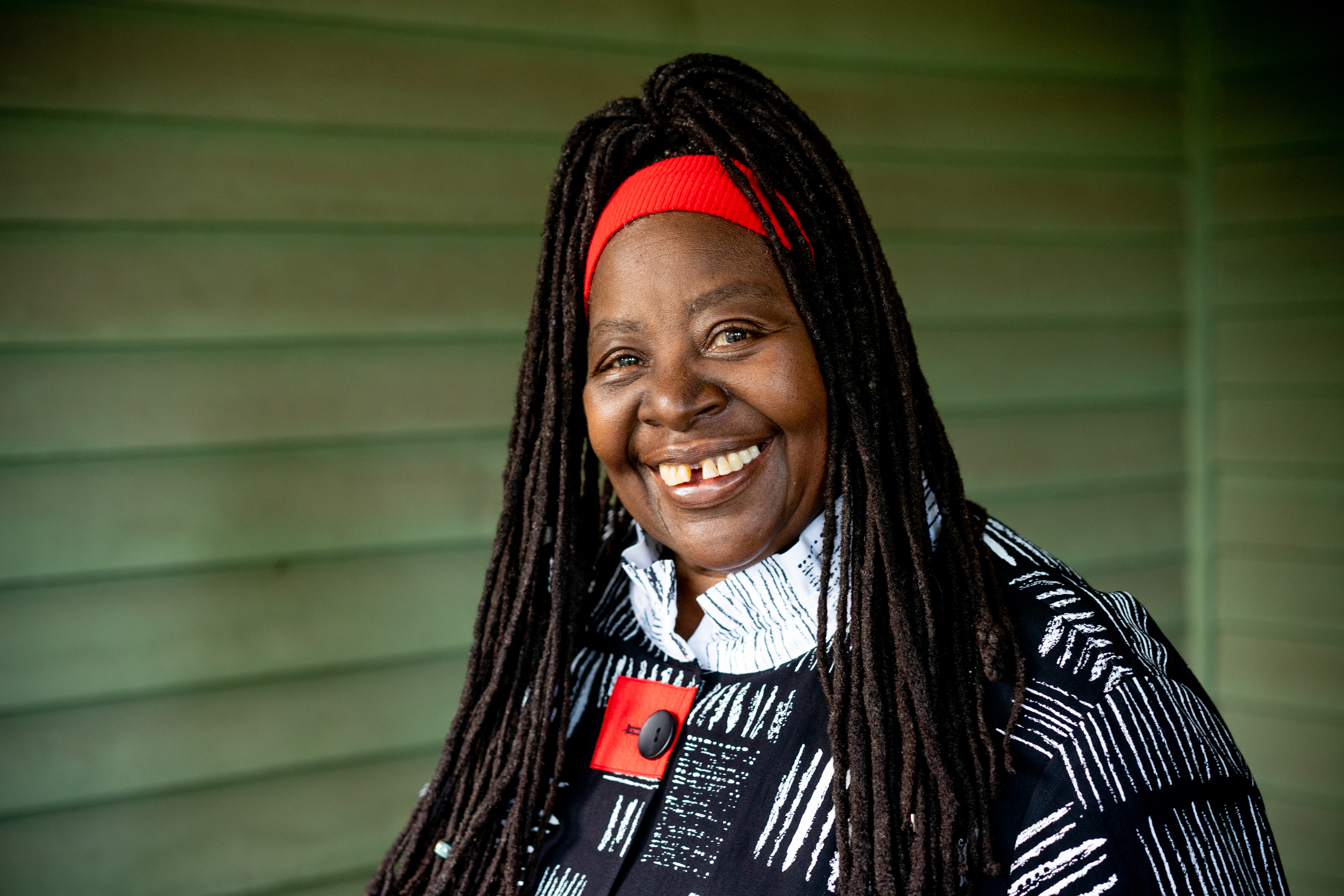"White Supremacist Groups Promote Hate and Violence." Extremist Groups, written by Loretta Ross, edited by Tamara L. Roleff, Greenhaven Press, 2001.
Loretta Ross addresses white supremacy as an ideology that threatens American society. Its adherents believe they have a moral right to use violence whenever their interests are threatened, she maintains, and although relatively few Americans are white supremacists, a larger number endorse their beliefs.
"Bringing human rights home: Human rights education for the 21st century," co-written with Meghna Gupta, Social Education, Oct. 1998.
Ross and Gupta discuss the importance of human rights education, proposing that human rights must be to the 21st century what democracy was to the 20th--a liberating force that demands freedom and justice for all. The importance of human rights education is discussed.
Excerpts from the Voices of Feminism Oral History Project
The Voices of Feminism Oral History Project, based at the Sophia Smith Collection, Smith College, documents the persistence and diversity of organizing for women in the United States. Narrators include labor, peace, and anti-racism activists, artists and writers, lesbian rights advocates, grassroots anti-violence and anti-poverty organizers, and women of color reproductive justice leaders. Interviews average five to six hours and cover childhood, personal life, and political work. Most oral histories consist of videotapes, audiotapes, or audio CDs, unedited and edited transcripts, correspondence between interviewer and narrator, a biographical sketch, the interviewer’s interview guide, and occasional research material and photos.
Interview with Linda Burnham by Loretta Ross, Meridians: feminism, race, transnationalism, vol. 13 no. 2, 2016
Loretta Ross interviews Linda Burnham, activist, writer, and organizational consultant. Burnham co-founded the Women of Color Resource Center in Oakland, California, in 1989 and was its executive director for 18 years. A journalist and political activist, Burnham has been involved with the Venceremos Brigades, the Third World Women’s Alliance, the Alliance Against Women’s Oppression, and the Angela Davis Defense Committee. She edited the anthology Changing the Race: Racial Politics and the Election of Barack Obama (2009) and co-authored Home Economics: The Invisible and Unregulated World of Domestic Work (2010). Her recent writings focus on African American women, African American politics, and low-wage work.
Interview with Peggy Saika by Loretta Ross, Meridians: feminism, race, transnationalism, vol. 10 no. 2, 2010
In this oral history, Saika underscores the lasting impact of the internment experience as a call to vigilance and action. She traces her political involvements from pan-Asian student activism in the late 1960s forward, marking her journey through various forms of organizing: direct service, civil rights, community organizing, and philanthropy. The interview offers a general outline of Saika's path as a postwar progressive who embraces her generation's challenge to build an ethnic movement that affirms Asian American identity and rights while it also advances a broad anti-racist, feminist, class-conscious social justice agenda.
Interview with Frances Beal by Loretta Ross, Meridians: feminism, race, transnationalism, vol. 8 no. 2, 2008
In this oral history, Frances M. Beal describes her unique childhood as the daughter of parents of refugee Jewish, African American, and Native American descent. The interview focuses on her activism in the United States and in France, including founding the Women’s Committee of SNCC (Student Nonviolent Coordinating Committee). Beal’s story captures the challenges of anti-racist, anti-fascist, and anti-imperialist organizing with a gender perspective.




